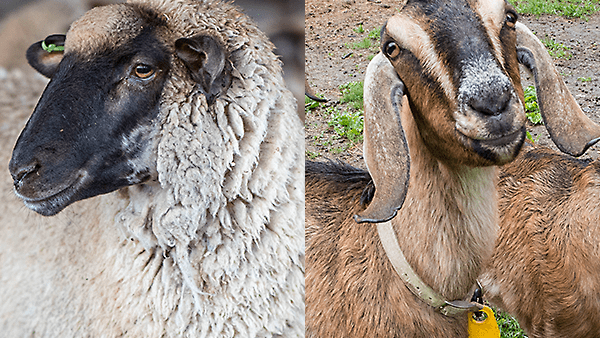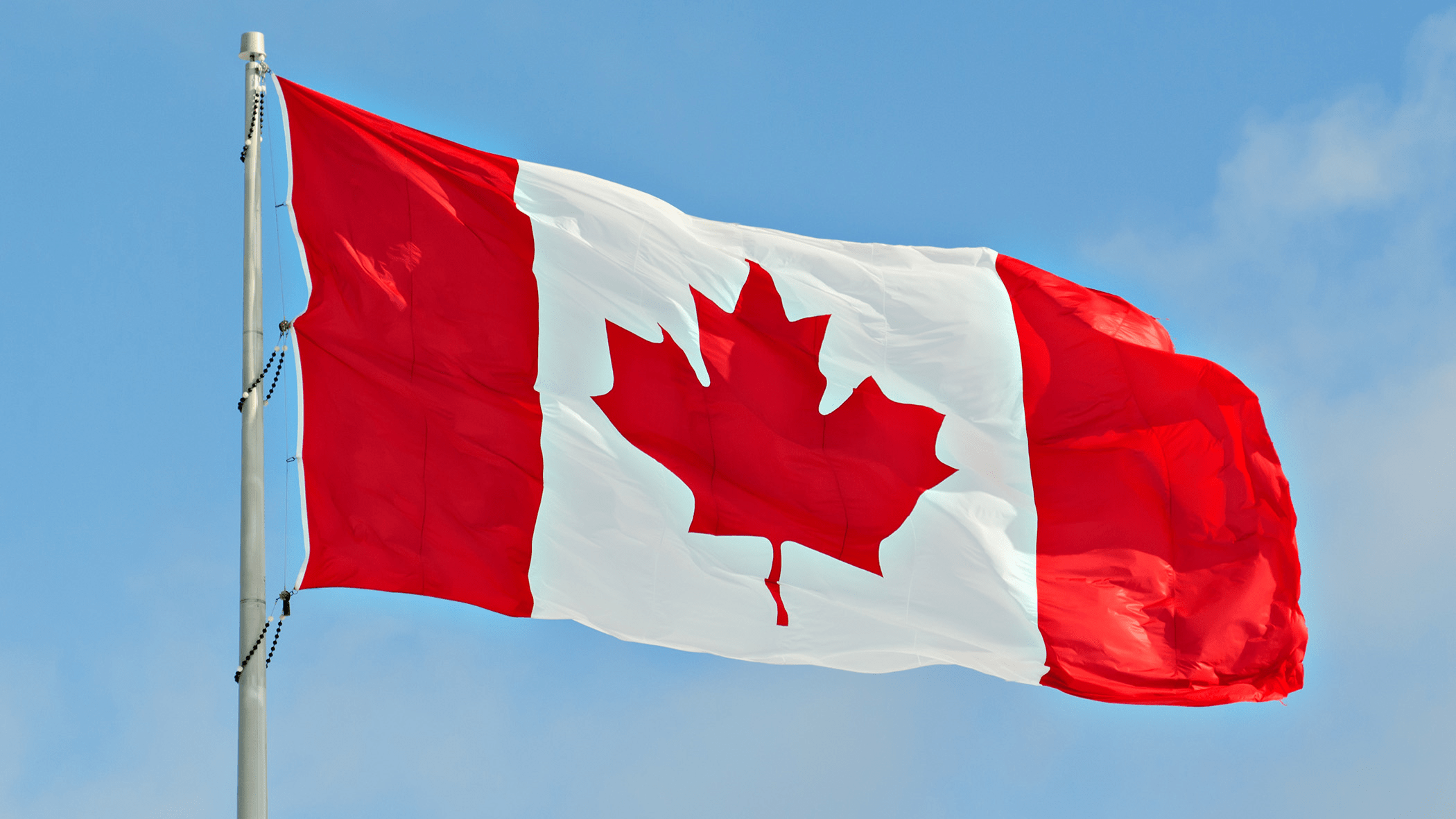Importing Live Sheep, Goats, and Germplasm into the United States

APHIS regulates the importation of all ruminants and their germplasm (embryos/oocytes, semen, cloning tissue) to prevent the spread of animal diseases. Ruminants include all animals that chew the cud, such as cattle, buffaloes, sheep, goats, deer, antelopes, camels, llamas, and giraffes.
Requirements
Australia
A permit and export health certificate are required.
- Australia import protocol and health certificate are being updated.
New Zealand
A permit and export health certificate are required.
Miscellaneous
- There are specific post-arrival requirements for imports of sheep and goat semen from Canada, the European Union, Iceland, and the United Kingdom (147.13 KB).
- Importing Ovine and Caprine Germplasm From Scrapie-Affected Countries (5.52 MB)
Australia
A permit and export health certificate are required.
- Import protocol being updated
European Union
Due to the recent detections of foot-and-mouth disease (FMD) in Germany, Hungary, and Slovakia, import of ovine/caprine semen from these countries is currently prohibited.
Because of ongoing peste des petits ruminants (PPR) outbreaks in Europe, sheep and goat semen from the following regions, collected on or after the specified dates, is not eligible for importation to the United States:
- Greece (July 8, 2024–present)
- Romania (July 15, 2024–present)
- Bulgaria (June 23, 2018–present)
- Hungary (January 24, 2025–present)
A permit and export health certificate are required.
- Importers or their designated agents must provide documentation of the destination facility premise registration premises ID assigned and recorded in the Surveillance Collaborative System/Scrapie (SCS SCR) with the permit application.
- There are also post-import requirements (147.13 KB) for each facility using this commodity.
- Protocol for Sheep and Goat Semen Import From Member States of the EU (270.76 KB)
- Model Health Certificate for Sheep and Goat Semen Import From Member States of the EU (246.86 KB)
- Health Certificate for Sheep and Goat Semen Import From Spain (337.5 KB)
- Health Certificate for Sheep and/or Goat Semen From Belgium (377.54 KB)
- Health Certificate for Sheep and/or Goat Semen From the Netherlands (105.75 KB)
Iceland
A permit and export health certificate are required.
- Importers or their designated agents must provide documentation of the destination facility premise registration premises ID assigned and recorded in the Surveillance Collaborative System/Scrapie (SCS SCR) with the permit application.
- There are also post-import requirements (147.13 KB) for each facility using this commodity.
- Protocol for Sheep and Goat Semen Imports From Iceland (274.6 KB)
- Model Health Certificate for Sheep and Goat Semen Import From Iceland (105.71 KB)
New Zealand
A permit and export health certificate are required.
- Sample Health Certificate for Sheep and Goat Semen (mpi.govt.nz)
United Kingdom
There are specific post-arrival requirements for imports of sheep and goat semen from Canada, the European Union, Iceland, and the United Kingdom (147.13 KB).
Importing Ovine and Caprine Germplasm From Scrapie-Affected Countries (5.52 MB)
Australia
A permit and export health certificate are required.
- Protocol is being updated.
New Zealand
A permit and export health certificate are required.
- Sample Health Certificate for Sheep and Goat Embryo (mpi.govt.nz)
Belgium
- An import permit and export health certificate are required.
- There are specific post-entry requirements for imports of sheep and goat embryos from Belgium (176.01 KB).
- Eligibility for Import
- Sheep and goat in-vivo embryos or oocytes may only be imported from Belgium:
- For transfer to recipient females in the United States if the flock or herd where the recipients reside is listed in the National Scrapie Database; or
- To an APHIS-approved embryo storage facility where they may be kept until being transferred to recipient females in a flock or herd in the United States listed in the APHIS National Scrapie Database.
- Sheep and goat in-vivo embryos or oocytes may only be imported from Belgium:
- Import Permit: An import permit is required. The application, VS Form 17-129 “Application for Import or in Transit Permit,” may be filed electronically using the eFile system. Please allow 7–10 business days for permit processing.
- When applying for an import permit, the following information must be provided:
- Documentation confirming the flock identification number of the destination flock/premises
- Documentation confirming the premises identification number of the destination flock/premises as listed in the National Scrapie Database
- Signed confirmation that the importer has read, understands, and will ensure the post-entry requirements (176.01 KB) are met
- When applying for an import permit, the following information must be provided:
- Export Health Certificates:
- Post-Entry and Additional Requirements:
- Post-entry requirements pertaining to the imported embryos/oocytes and resulting offspring apply and will need to be met by the importer of record. These requirements will be outlined in the import permit and can also be found in detail at Post-Entry Requirements for Imported Sheep and Goat Embryos From Belgium (176.01 KB).
- Additional Requirements: Individual States may have additional import requirements. It is the importer's responsibility to verify these conditions and meet them. The importer should contact the U.S. State veterinarian of the destination State to determine these regulations. For contact information, visit U.S. State and Territory Animal Entry Requirements.
United Kingdom
- An import permit and export health certificate are required.
- There are specific post-entry requirements for imports of sheep and goat embryos from the United Kingdom (176.01 KB).
- Eligibility for Import
- Sheep and goat in-vivo embryos or oocytes may only be imported from the United Kingdom:
- For transfer to recipient females in the United States if the flock or herd where the recipients reside is listed in the National Scrapie Database; or
- To an APHIS-approved embryo storage facility where they may be kept until being transferred to recipient females in a flock or herd in the United States listed in the APHIS National Scrapie Database.
- Sheep and goat in-vivo embryos or oocytes may only be imported from the United Kingdom:
- Import Permit: An import permit is required. The application, VS Form 17-129 “Application for Import or in Transit Permit”, is best filed electronically using the eFile system. Alternatively, Form 17-129 can be obtained by downloading from the APHIS website or emailing laipermits@usda.gov. Please allow 7–10 business days for permit processing.
- When applying for an import permit, the following information must be provided:
- Documentation confirming the flock identification number of the destination flock/premises
- Documentation confirming the premises identification number of the destination flock/premises as listed in the National Scrapie Database
- Confirmation that the importer has read and understands the post-entry requirements (176.01 KB)
- When applying for an import permit, the following information must be provided:
- Export Health Certificates:
- Great Britain (publishing.service.gov.uk)
- Northern Ireland (publishing.service.gov.uk)
- Post-Entry and Additional Requirements:
- Post-entry requirements pertaining to the imported embryos/oocytes and resulting offspring apply and will need to be met by the importer of record. These requirements will be outlined in the import permit and can also be found in detail at Post-Entry Requirements for Imported Sheep and Goat Embryos From the United Kingdom (176.01 KB).
- Additional Requirements: Individual States may have additional import requirements. It is the importer's responsibility to verify these conditions and meet them. The importer should contact the U.S. State veterinarian of the destination State to determine these regulations. For contact information, visit U.S. State and Territory Animal Entry Requirements.
View requirements for importing live sheep and goats and sheep and goat semen and embryos from Canada.
What You Need To Know
- U.S. transits are classified as shipments presented to a U.S. port of entry for conveyance purposes to then be transported to a destination country shortly after.
- Please note that any animals and their germplasm transiting the United States must not transit countries with questionable disease statuses prior to reaching a U.S. port of entry.
- All transits require a contingency plan. Submit your contingency plan with your permit application (VS 17-129 (211.74 KB)) to laipermits@usda.gov. To submit an import permit electronically, visit APHIS eFile.
- If you are applying to import live animals, semen, and embryos, you may submit applications by email to laipermits@usda.gov.
Contact Us
Live Animal Imports
For questions about import permits or permit applications:
Live Animal Import Permit Team
Email: laipermits@usda.gov
Phone: 301-851-3300
For general questions related to the import of a live animal:
Live Animal Import and Export
Email: laie@usda.gov
Phone: 301-851-3300


